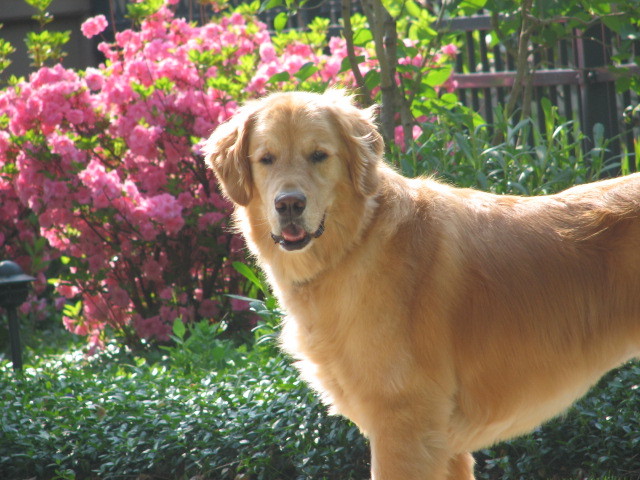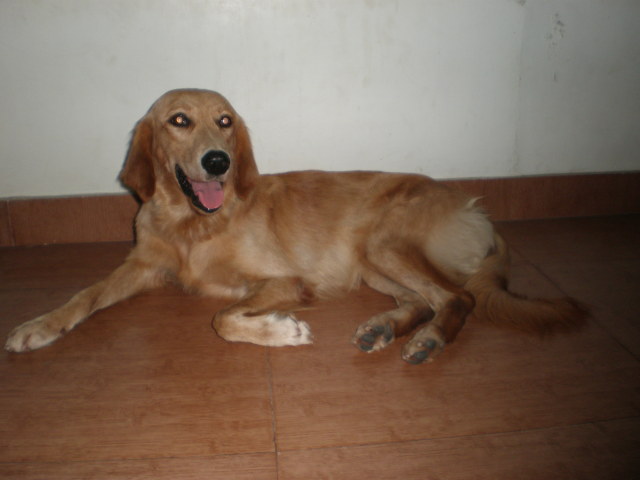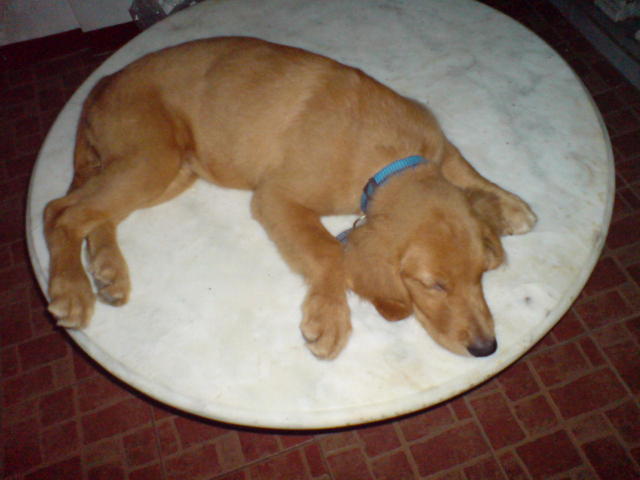QuestionWe have a wonderful 12 week old male yellow lab, Junior, that we have had since he was 8 weeks old. He is a very affectionate pup and is doing very well with our family (we have 3 young boys, 6,5 & 3) When we got him from a reputable breeder, my sister and her family also got his sister, Ashley. My sister and her family have decided that it is not a good fit and are preparing to send her back to the breeder this weekend and have asked us, with the breeder's consent, if we are interested in taking her in. She is also a great pup (we have babysat her overnight on 2 separate occasions), it is that they are just not "dog" people.
By way of background, we have always been a 2 dog family and we sadly lost both our older dogs (within 2 weeks of each other) prior to getting this lab. Our first dog was a female German shepherd puppy and when she was 2.5 years old we got a male German shepherd puppy. Things were wonderful with the two dogs and we couldn't have imagined not having them together.
That being said, having 2 dogs is not the issue with us - rather that would be the plan when our pup is between 2 and 3 years old. Now this opportunity has presented itself and we want to make the right choice for everyone, including the dogs. The breeder is willing to take her back if things do not work out with us.
My concern is not having 2 dogs, but rather the issues and warnings I have seen about littermates syndrome and bonding issues.
Any thought?
AnswerIt is a real problem. Likely having spent much of the last 4 weeks apart will help. There is no over emphasizing the importance of the 6-12 week period. There are ways of bonding the puppy to you. Good leadership helps too.
''Elevation for small puppies: Sit on the floor and gently put your hands around your pup's middle, below his front legs, and lift him up. He is facing you. Hold him for 15 seconds. Repeat until he no longer struggles. If he is past 10-12 weeks, lift his front feet off the ground, but don't pick him up.
Cradling for small puppies: Hold your puppy gently on his back, as you would cradle a small baby. If he struggles, hold him firmly until he quiets for 10-15 seconds. With larger pups, you can do this as your s''Elevation for small puppies: Sit on the floor and gently put your hands around your pup's middle, below his front legs, and lift him up. He is facing you. Hold him for 15 seconds. Repeat until he no longer struggles. If he is past 10-12 weeks, lift his front feet off the ground, but don't pick him up.
Cradling for small puppies: Hold your puppy gently on his back, as you would cradle a small baby. If he struggles, hold him firmly until he quiets for 10-15 seconds. With larger pups, you can do this as your sit on the floor, with your pup between your legs.
Quiet lying down: Place your pup on the floor on his side, with all 4 legs pointing away from you. Use your hands on his neck/shoulder area and middle, to hold him in this position. When he is quiet, praise him. Lengthen the time that you keep him quietly in this position. When he accepts this position well, handle his paws and muzzle, while keeping him quiet.''
The quotes mean this isn't my original work. It is copied from my Puppy Raising Manual. I have long used these or minor variations of them, and they are very effective. You may want to give him a belly rub while he is on his back too. Helps bonding. There is a big difference between him rolling over and demanding a belly rub, and you choosing a time to roll him over and rub his belly. The latter cements your place as pack leader.it on the floor, with your pup between your legs.
Quiet lying down: Place your pup on the floor on his side, with all 4 legs pointing away from you. Use your hands on his neck/shoulder area and middle, to hold him in this position. When he is quiet, praise him. Lengthen the time that you keep him quietly in this position. When he accepts this position well, handle his paws and muzzle, while keeping him quiet.''
The quotes mean this isn't my original work. It is copied from my Puppy Raising Manual. I have long used these or minor variations of them, and they are very effective. You may want to give him a belly rub while he is on his back too. Helps bonding. There is a big difference between him rolling over and demanding a belly rub, and you choosing a time to roll him over and rub his belly. The latter cements your place as pack leader.
I would risk it.

 Anxiety? golden retreiver ; valerian time release canine dosage :
QuestionMy Golden is panting, pacing and pawing excessi
Anxiety? golden retreiver ; valerian time release canine dosage :
QuestionMy Golden is panting, pacing and pawing excessi
 not gaining weight sojo dog food;
QuestionMy female golden puppy of 6mos.cant seem to gai
not gaining weight sojo dog food;
QuestionMy female golden puppy of 6mos.cant seem to gai
 Goldens and cancer
Question
Duke
I just read your response to a women who
Goldens and cancer
Question
Duke
I just read your response to a women who
 Food for a 8 months GR
QuestionRini
QUESTION: I have a 8 months old fem
Food for a 8 months GR
QuestionRini
QUESTION: I have a 8 months old fem
 dog licking legs
QuestionI have a blue tice walker that has licked holes
dog licking legs
QuestionI have a blue tice walker that has licked holes